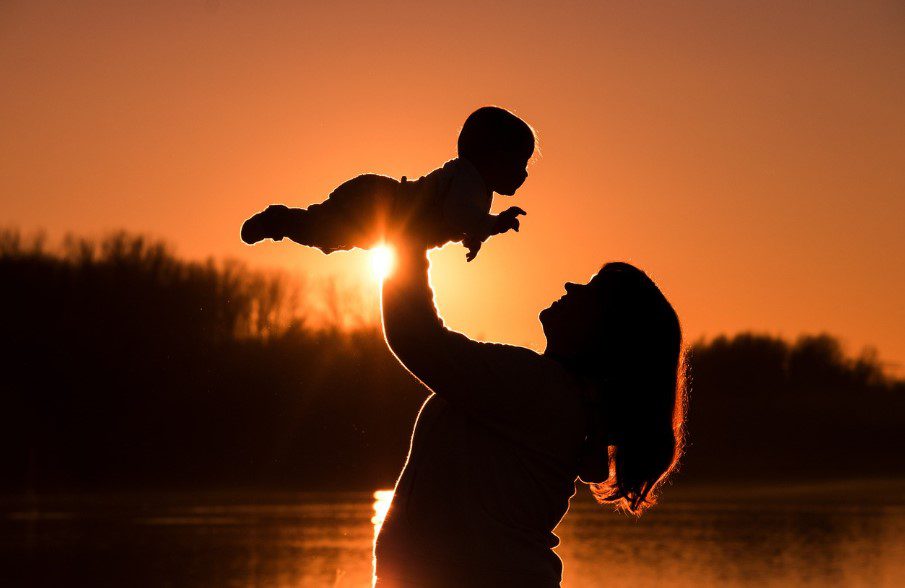Parenthood is a journey filled with love, joy, and countless decisions aimed at ensuring the well-being of our little ones. However, amidst the overwhelming responsibilities and the best of intentions, of caring for infants, some common unsafe parenting practices unknowingly put our babies at risk.
Unsafe parenting refers to actions or inactions by a caregiver that put a child’s physical or emotional well-being at risk. It can take a severe form like abuse or neglect, but also include behaviors that parents might not realize are harmful.
From seemingly harmless activities like baby tossing to more serious oversights like leaving infants unattended during bath time, it is important to be aware of these unsafe practices and related consequences.
In this article, we look into the various ways parents may unknowingly promote unsafe practices, and provide insights into safer parenting alternatives to promote a better environment for the little ones.

1. Baby Tossing or Throwing Infants in the Air
Risks Associated
Some parents engage in playful activities like throwing or tossing infants in the air. While it may seem harmless or even fun, this practice can actually pose serious risks to the baby’s safety. Babies have delicate neck muscles and limited head control, which means they are susceptible to neck injuries or shaken baby syndrome from such rough handling.
Alternatives
Instead of tossing infants, parents can engage in gentle play activities that promote bonding without compromising safety. Activities such as cuddling, singing, and gentle rocking are excellent alternatives that foster attachment and minimize risks.
2. Allowing Infants to Sleep on Soft Surfaces
Risks of Suffocation
Soft surfaces like sofas or adult beds may seem comfortable, but they pose a suffocation hazard for infants. Soft bedding can obstruct the infant’s airway, increasing the risk of suffocation or sudden infant death syndrome (SIDS).
Safer Sleeping Practices
To ensure safe sleep environments, infants should be placed on firm mattresses with fitted sheets. Additionally, using a crib or bassinet free from pillows, blankets, or soft toys reduces suffocation risks and promotes sound sleep.
3. Overfeeding Infants or Forcing Them to Finish a Bottle
Impact on Infant Health
Overfeeding infants or pressuring them to finish a bottle is one of the unsafe parenting practices because it can lead to digestive issues, obesity, and discomfort. Infants have intuitive feeding cues, and forcing them to consume more than needed disrupts their natural feeding rhythm.
Feeding Guidelines
Parents should follow infant feeding cues and offer appropriate portions during feeding sessions. Responsive feeding, where parents recognize hunger and fullness cues, fosters healthy eating habits and promotes optimal growth and development.
4. Using Medication Dosages Meant for Adults on Children
Dangers of Overdosing
Administering adult medication dosages to children can result in overdose and adverse effects. Children metabolize medications differently than adults, and incorrect dosages can be harmful or even life-threatening.
Importance of Pediatric Dosages
Parents should always use medications specifically formulated for children and follow healthcare provider recommendations regarding dosage and administration. Pediatric medications are formulated based on age, weight, and medical condition to ensure safety and efficacy.
5. Leaving Babies Unattended During Bath Time
Drowning Risks
Leaving infants unattended during bath time can lead to drowning accidents, even in shallow water. It only takes a few inches of water for a baby to drown, highlighting the importance of constant supervision.
Bath Time Safety Measures
Parents should never leave infants alone in the bathtub, even for a moment. Always keep one hand on the baby during bath time and gather all necessary supplies beforehand to minimize distractions.
6. Smoking or Vaping Near Children
Health Hazards of Secondhand Smoke
Exposure to secondhand smoke from smoking or vaping increases the risk of respiratory infections, asthma, and sudden infant death syndrome (SIDS). Infants and young children are particularly vulnerable to the harmful effects of tobacco smoke.
Creating Smoke-Free Environments
To protect children from secondhand smoke, parents should refrain from smoking or vaping indoors or near children. Establishing smoke-free environments at home and in vehicles promotes better respiratory health for the entire family.
7. Not Securely Anchoring Furniture or TVs
Risks of Tip-Overs
Unsecured furniture or TVs pose a significant risk of tipping over, especially in households with young children. Tip-over incidents can result in serious injuries or fatalities, highlighting the importance of proper anchoring.
Childproofing Strategies
Parents should secure furniture and TVs to the wall using appropriate anchors or straps to prevent tip-overs. Additionally, heavy items should be placed on lower shelves or cabinets to minimize risks.
8. Allowing Infants to Sleep on Their Stomachs
Sudden Infant Death Syndrome (SIDS) Risk
Placing infants to sleep on their stomachs increases the risk of SIDS, the leading cause of death in infants under one year old. Stomach sleeping can obstruct the airway and compromise breathing.
Back Sleeping Recommendations
To reduce the risk of SIDS, infants should always be placed on their backs to sleep, both for naps and nighttime sleep. Back sleeping is the safest sleep position and is recommended by pediatric experts.
9. Overusing Antibacterial Products
Antibiotic Resistance Concerns
Excessive use of antibacterial products can contribute to antibiotic resistance, making infections harder to treat. Additionally, antibacterial products may contain harsh chemicals that can irritate the skin and disrupt the body’s natural microbiome.
Proper Hygiene Practices
Instead of relying solely on antibacterial products, parents should prioritize proper handwashing with soap and water. Regular handwashing, especially before and after handling infants, is an effective way to prevent the spread of germs.
10. Feeding Honey to Infants Under One Year Old
Botulism Risk
Honey can contain spores of Clostridium botulinum, a bacterium that can cause botulism in infants under one year old. The immature digestive system of infants cannot effectively combat these spores, increasing the risk of infection.
Suitable Infant Foods
Parents should refrain from feeding honey to infants under one year old and opt for age-appropriate solid foods recommended by healthcare providers. Breast milk or formula remains the primary source of nutrition for infants during their first year.
11. Using Baby Walkers
Fall and Injury Risks
Baby walkers can lead to falls, head injuries, and other accidents, as they give infants mobility before they are developmentally ready. The speed and unpredictability of baby walkers increase the risk of collisions and falls down stairs.
Alternative Mobility Aids
Parents should consider alternative mobility aids such as stationary activity centers, exersaucers, or push toys that promote safe exploration and development. These alternatives provide support while encouraging gross motor skills development.
12. Not Childproofing Electrical Outlets and Cords
Electrocution Hazards
Uncovered electrical outlets and cords pose a significant risk of electrocution for curious infants and toddlers. Children may insert objects into outlets or chew on cords, resulting in severe injuries.
Childproofing Tips
Parents should install outlet covers or safety plugs to prevent children from accessing electrical outlets. Additionally, cords should be secured and kept out of reach or hidden behind furniture to minimize temptation.
13. Giving Infants Water Too Early
Impact on Nutritional Intake
Yes, water is fantastic for child health, but giving water to infants before they are developmentally ready can fill them up without providing essential nutrients from breast milk or formula. Water consumption may interfere with proper feeding and lead to inadequate weight gain.
Breast Milk or Formula Sufficiency
Infants receive all the hydration they need from breast milk or formula during the first six months of life. Parents should not offer water to infants until healthcare providers indicate it is appropriate, typically around six months of age.
14. Leaving Infants Unattended on High Surfaces
Fall Risks
Leaving infants unattended on high surfaces like changing tables or sofas increases the risk of falls and serious injuries. Infants can roll or wiggle unexpectedly, leading to accidents.
Supervision Importance
Parents should never leave infants unattended on elevated surfaces, even for a brief moment. Always keep one hand on the baby during diaper changes or other activities that involve elevated surfaces.
15. Allowing Children to Play with Plastic Bags
Suffocation Dangers
Plastic bags pose a severe suffocation risk for young children, as they can cover the nose and mouth, preventing proper airflow. Children may also become trapped inside large plastic bags, leading to suffocation.
Safe Toy Alternatives
To prevent suffocation hazards, parents should ensure that plastic bags are stored out of reach and properly disposed of after use. Offer safe and age-appropriate toys that encourage imaginative play and development.
FAQs About Unsafe Parenting Practices on Infants:

1. Why is back sleeping recommended for infants?
Back sleeping is recommended for infants to reduce the risk of sudden infant death syndrome (SIDS), the leading cause of death in infants under one year old. This sleep position helps keep the airway clear and promotes safer sleep.
2. When should parents start childproofing their home?
Parents should start childproofing their home before the baby arrives, ideally during pregnancy or before the infant becomes mobile. This allows ample time to identify and address potential hazards to create a safe environment for the baby.
3. Can overfeeding infants lead to obesity?
Yes, overfeeding infants can contribute to obesity later in life. It disrupts their ability to self-regulate food intake and can lead to unhealthy eating habits. Following infant feeding cues and offering appropriate portions helps promote healthy growth and development.
4. Why is it important to secure furniture and TVs?
Securing furniture and TVs prevents tip-over accidents, which can cause serious injuries or fatalities, especially in young children. Anchoring furniture to the wall reduces the risk of tip-overs and creates a safer environment for children to play and explore.
5. When can infants start drinking water?
Infants receive all the hydration they need from breast milk or formula during the first six months of life. Water can be introduced gradually around six months of age, depending on the guidance of healthcare providers.
In Conclusion
Ensuring the safety of infants requires vigilance, awareness, and proactive measures to mitigate potential risks. By avoiding unsafe parenting practices and adopting alternatives that prioritize safety and well-being, parents can create nurturing environments where infants thrive and flourish.





Leave a Reply